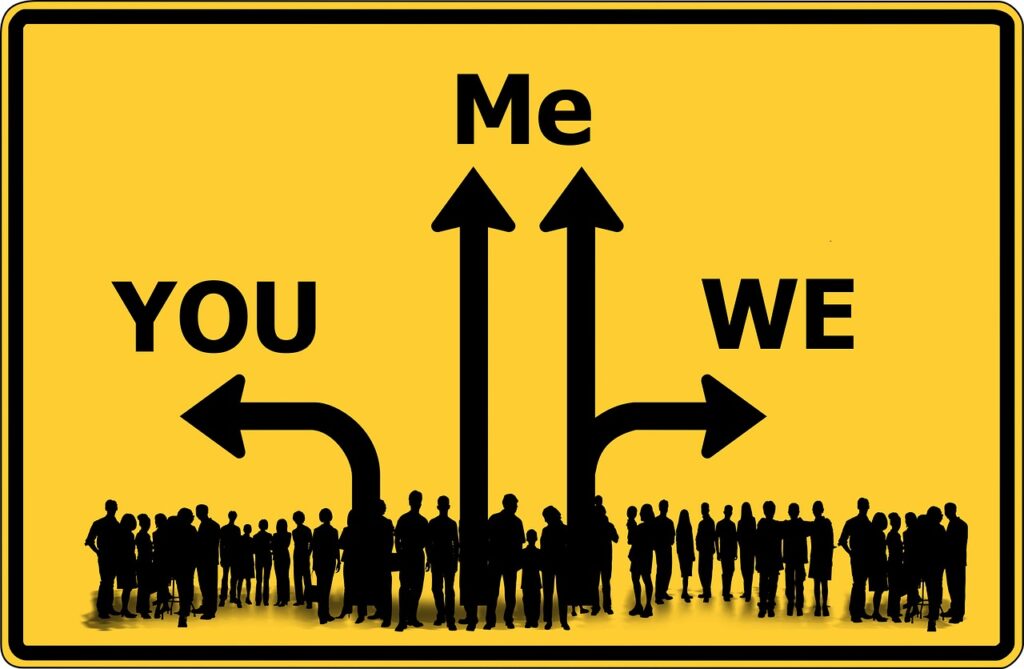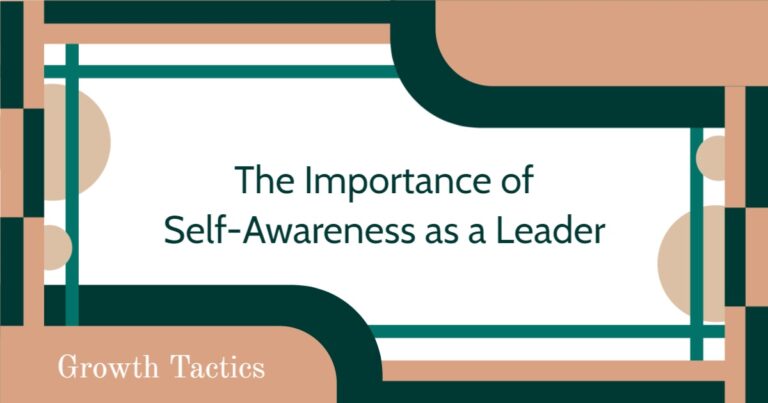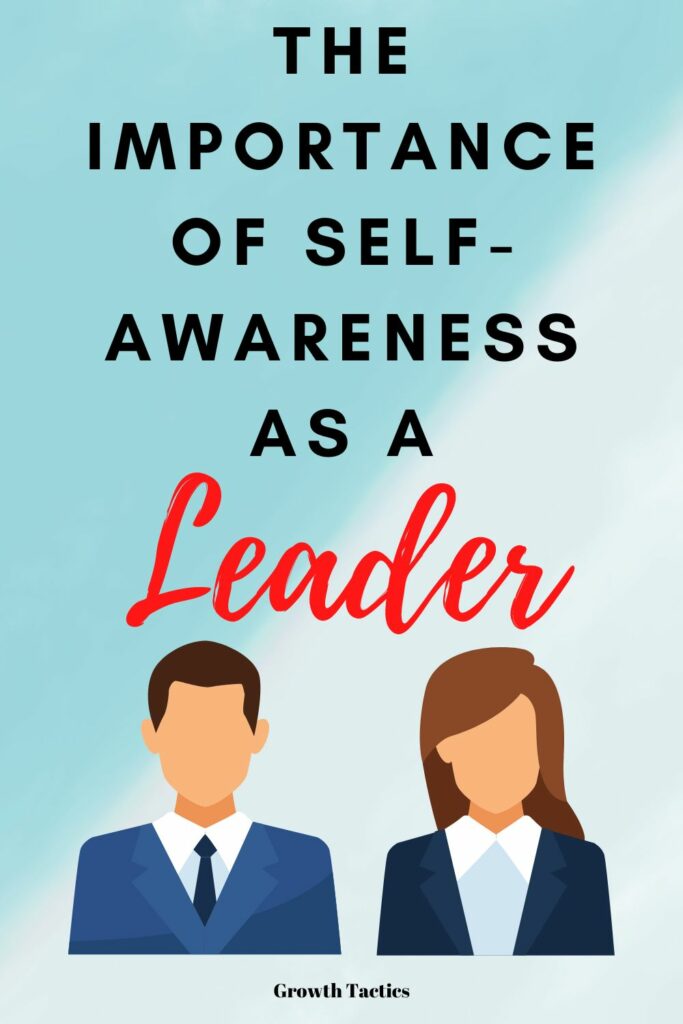Self-awareness as a leader is crucial. It allows you to listen, learn, and respond to your team, as well as understand your strengths and weaknesses.
The most effective leaders are those who are self-aware and able to build on their strengths while improving their weaknesses. Self-awareness helps build trust and create an environment where people feel comfortable sharing ideas or concerns.
This results in stronger relationships between the leader and the rest of their team which ultimately leads to better business outcomes for everyone involved!
Jump To Section
What Is Self-Awareness?
Self-awareness is the ability to recognize your own emotions, thoughts, and behaviors. It’s a key component of emotional intelligence (EQ).
Self-awareness allows you to manage your reactions and make better decisions. It helps you understand others’ behavior, which can help you build strong relationships with peers and lead teams effectively.
Self-awareness is a skill that can be developed through self-reflection and by learning about your strengths and weaknesses. It also helps to understand how your values affect the way you make decisions.

The Benefits of Self-Awareness in Leadership
Self-awareness is the first step to personal growth because it helps you to understand yourself and how you are perceived by others. It also helps you identify your strengths and weaknesses.
Self-awareness can help you manage stress, build confidence, and make better decisions. It can also help you communicate more effectively with others.
Self-awareness is also an important part of being a good leader. It allows you to understand the needs and wants of your team members, as well as what motivates them. This can be invaluable when it comes time for performance reviews or goal setting.
Self-awareness is also a key component of emotional intelligence. Emotional intelligence refers to your ability to recognize and manage your own emotions, as well as those of others. It helps you understand what motivates people and how they respond to different situations.
See Related: Great Leadership Starts With Great Self-Leadership Strategies
Self-Awareness and Leadership
Emotional intelligence (EQ) is a key component of self-awareness. Leaders with high EQ have the ability to understand their own emotions and those of others, and they use this awareness to make effective decisions. Self-aware leaders are also able to distinguish between their own needs and the needs of those they lead.
Self-awareness is a core leadership competency because it helps you learn from experiences, become comfortable with your strengths and weaknesses, recognize your values, evaluate threats in your environment, and integrate feedback from others into your work processes and strategies for change. All things that successful leaders need to do well!
Self-awareness will help you better understand yourself by giving you insight into how you think about things or react under certain conditions.
It will also allow you to explore what motivates or drives others around them so they can communicate better with team members or colleagues who may have opposing views or opinions on certain topics.
The more self-aware you are, the better equipped you are to know what works for you and what doesn’t. It makes it easier to focus on the things that matter most, which can help improve your performance at work.

How to Build Self-Awareness
You may be wondering how to build self-awareness. How can you possibly pick up on all of your behaviors and thought patterns, much less analyze them?
Luckily, there are many ways to increase your self-awareness and improve it over time.
The first step is simply becoming more aware of what’s going on around you. Pay attention when someone tells a story about something that happened, or even just shares their feelings about something (e.g., “I was so angry when…”).
If this person is talking about something that happened in the past, think about why they would have felt that way. Then, what was happening in their life at the time? What were other people doing?
What were some external factors affecting them? It might not seem like much now but paying attention can help develop self-awareness later on down the line!
Another tip is to ask yourself questions like: How did I feel during a certain situation? Did I notice anything out of place at the time? How did I react? Could I have done something differently?
These questions can help you become more self-aware as they force you to reflect on your actions and reactions.
They also open up the possibility of looking at situations from a different perspective (e.g., being able to see how someone else might have reacted differently than you did).
See Related: How To Be More Self-Motivated and Achieve Greater Success

Write it Down
Another way to become more self-aware is to write down your strengths and weaknesses. This can be a great way to get an objective view of yourself and your abilities.
You can do this by writing down what you think your strengths are, and then asking a friend or family member for their opinion on the same topic. You can also ask them to write down what they think your weaknesses are as well. Then compare notes!
Keep an open mind and try not to get defensive if someone has something negative to say about you or your abilities. You might be surprised at how accurate their assessment is! This can often be a tough pill to swallow but it is necessary to become more self-aware.
Know your emotional triggers. Emotions are powerful and they can often cloud our judgment. This is why it’s important to know what your emotional triggers are and how to manage them when they occur.
If you are someone who gets angry very easily, then learn how to manage that anger before it becomes an issue. Learn about the different types of emotions and what causes them so that you can more easily identify which ones you feel at any given time in your life.
The Most Effective Leaders Are Emotionally Intelligent
Emotionally intelligent leaders are more effective because they can listen better and communicate with their team. They are also better at managing conflict and motivating their teams.
A good leader is aware of their strengths and weaknesses, so they know how to delegate tasks appropriately.
They also can make decisions more easily, because they know what needs to be done in different situations.
If a negative situation arises, for example, an emotionally intelligent person would have a clear understanding of how best to approach it or deal with it without letting emotions cloud judgments or actions taken regarding that situation.

Successful Leaders Never Stop Learning
You must be open to learning and willing to take advice from other people, even if it means doing things differently than you’ve done in the past. You should also make sure that you are willing to learn from your own mistakes because there is no better way to know what not to do than by making mistakes and learning from them.
A good leader is humble. The most effective leaders are not the ones who tell everyone how great they are, but rather those who listen to others and work with them as equals.
This will help you build strong relationships with your colleagues and employees, which will only make your business stronger.
The best leaders are those who can listen to others and work with them as equals. A good leader is humble. You should also make sure that you are willing to learn from your own mistakes because there is no better way to know what not to do than by making mistakes and learning from them.
While it is important for you to set goals for yourself and your company, it is equally important that you have a clear vision of what success looks like. This will help you stay focused on what matters most and avoid getting distracted by minor details that don’t matter.
See Related: What Is Strategic Leadership and Management? How to Use It
Being Self-Aware Is a Must for Every Leader!
Self-awareness is a key leadership skill. It’s the ability to understand and appreciate your own emotions, motivations, and drives.
Self-awareness helps you to make better decisions because you don’t judge yourself so harshly when things go wrong. You’re able to see that it’s OK for mistakes to happen on occasion as long as they are recognized and worked through with others.
It also means that you can be more empathetic towards others because you know what needs to be done for them to feel valued by their leader and how they may interpret your words or actions differently from how they were intended.
Conclusion
If you’re not self-aware, you won’t know what your strengths are or which areas of your life may need improvement. This means that you won’t be able to make decisions based on this information and it will affect the productivity and success of your team as well!
I encourage all leaders to take some time out each day to reflect on their own lives, so they can continue improving themselves to lead others effectively.
Did you enjoy this article on the importance of self-awareness in leadership? Share and subscribe below.


